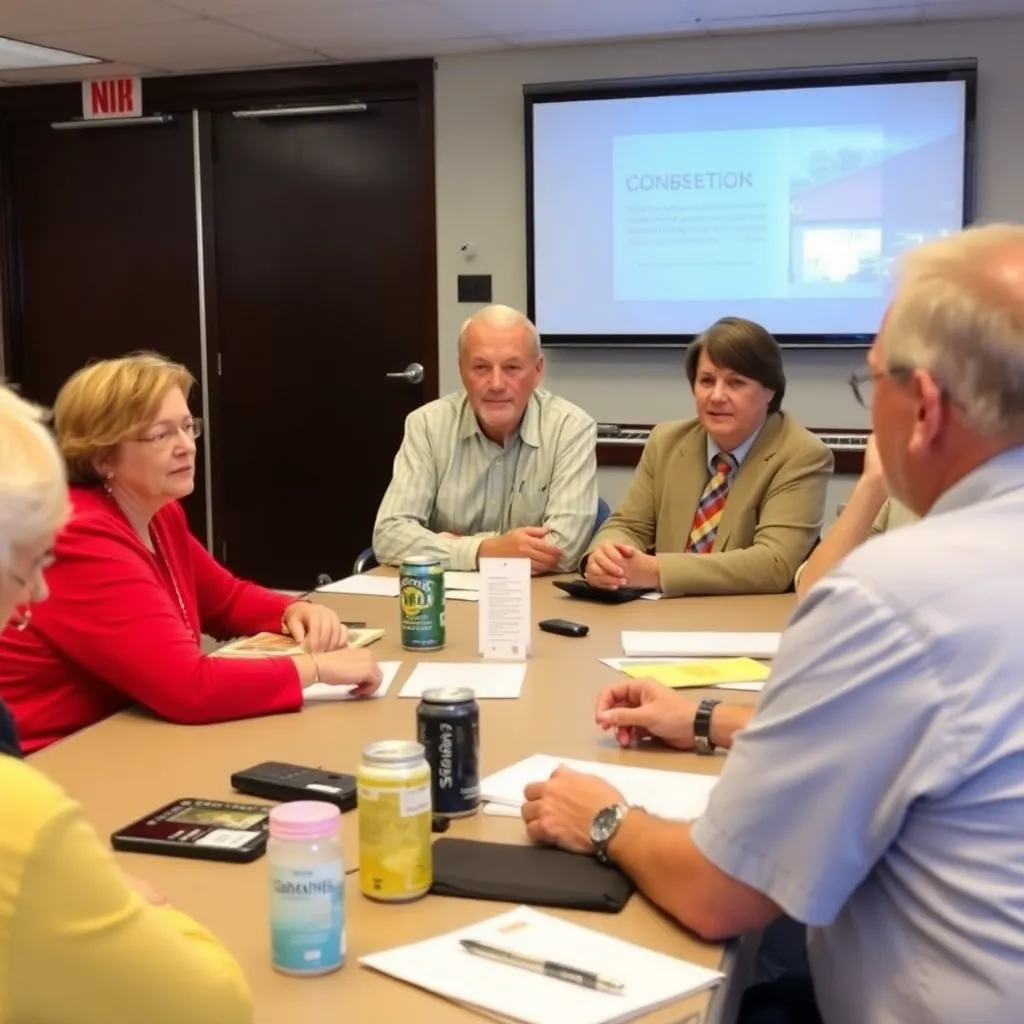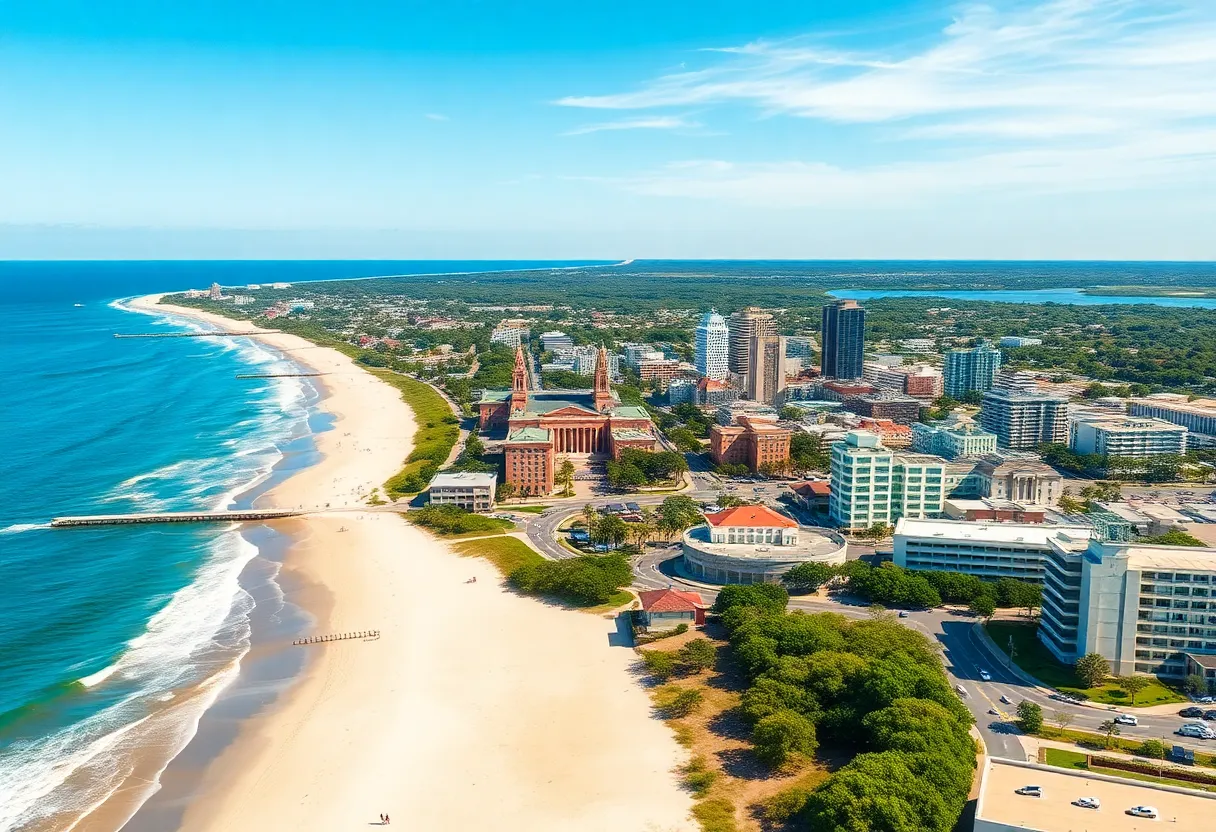Panel Discussion at Dunes Golf and Beach Club Brings Local Issues to Light
MYRTLE BEACH, SC – The movers and shakers of Horry County gathered together on Tuesday, Nov. 19, at the Dunes Golf and Beach Club to engage in a friendly and open discussion regarding the upcoming 2025 South Carolina state legislative session, which kicks off on January 14. A lively panel of local state representatives included Lee Hewitt (District 108), Tim McGinnis (56), William Bailey (104), Case Britton (107), and Carla Schuessler (61), all of whom shared their insights into the pressing issues facing the region.
Rising Insurance Rates: A Growing Concern
One of the hottest topics on the agenda was the alarming trend of rising insurance rates. Representative William Bailey took center stage to talk about ongoing efforts to revise liquor liability laws in the state. Currently, bars in South Carolina that remain open past 5 p.m. are required to carry at least $1 million in liability insurance, thanks to a law known as the “Dram Shop” law, which was enacted in 2017 to combat a rise in drunk driving incidents.
Bailey emphasized the need for a tiered approach to insurance requirements, allowing smaller businesses to lower their liability burdens. He expressed optimism that progress could be made, noting a bipartisan committee has been formed to tackle the issue. “It shows that we can work together for the greater good,” he added.
Meanwhile, Tim McGinnis, owner of Famous Toastery in Carolina Forest, acknowledged that his restaurant’s early closing time means he hasn’t felt the immediate pinch of rising rates. Yet, he sympathized with fellow business owners who have found the increasing cost of insurance challenging, if not unsustainable. “There’s a huge insurance crisis right now,” he stated firmly. “For some bars and businesses, this could be the nail in the coffin.” His heartfelt words resonated with many in the room, as small business owners shared their stories of struggle.
Paving the Way for Better Infrastructure
Infrastructure was also a key focus during the discussion. McGinnis praised local leaders for their successful efforts in passing the RIDE IV penny sales tax, which aims to improve transportation infrastructure in the area. He initially had reservations about a 25-year tax commitment but admitted that the long-term funding will ultimately benefit the community. “This way we can start collecting that money, and it’s just a win-win,” he concluded.
Hewitt highlighted the importance of enhancing infrastructure, especially following the recent closure of the International Paper mill in Georgetown. “This is a huge hit for our community,” he lamented. With over 700 employees and numerous contractors facing job loss, the economic ripple effects have been felt across local restaurants and businesses. He stressed that better highway access and improved rail systems would attract new industries to the area, helping to recover lost jobs.
Affordable Housing: A Growing Need
Another vital topic centered around affordable housing, which Representative Case Britton approached with great passion. He emphasized the need for “workplace housing” that accommodates essential workers like teachers and first responders, allowing them to live within the communities they serve. “These folks shouldn’t have to drive from long distances to get to work,” he pointed out, advocating for solutions to improve housing access.
Newly elected Carla Schuessler spoke on another pressing matter—the lengthy wait times for building permits in coastal areas. She sees an opportunity for improvement now that DHEC is splitting into two separate agencies. “This could streamline the process significantly,” she explained.
Energy Regulation Challenges
The panel members also touched on the need for better energy resources, as Representative Britton lamented the dependency on outside sources. “We need to find regulations that work,” he said, addressing the ongoing issues related to natural gas projects being held up by legal challenges. He pointed out that regulations should provide room for development without bogging down progress.
As the panel wrapped up, one thing was clear: these representatives are committed to addressing the needs and concerns of the Horry County community. With the legislative session on the horizon, there’s a renewed sense of hope and opportunity for change.
Stay tuned for more updates as these local leaders navigate their way through the upcoming legislative session and work to bring solutions to the forefront.







